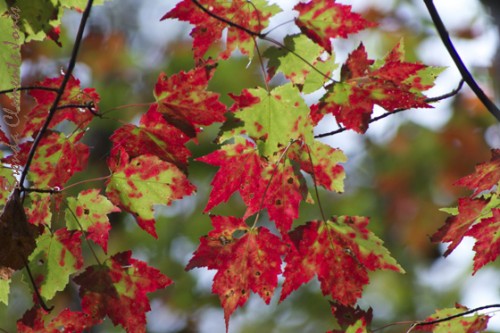
Ubiquitous
This fall, as I hike the steep and not so steep slopes of the Blue Ridge Mountains, I see many, many Red Maples. Reading various websites and books to get information on the tree, I am not surprised to learn that this is the most common deciduous tree in eastern North America. Yes, it is everywhere. Red Maples do well, for the most part, no matter what conditions they are asked to deal with. They will live in swamps and can easily be found on dry ridges. Soil type is not something that the tree quibbles about either.

Early Bloomer
Red Maple is the earliest flower you’ll see here in the Blue Ridge Mountains. Even beating out the first of the Bloodroot.

Deep, Rich Red In The Snow
They bloom so early that often you will find their wine colored flowers covered in snow.

Leafless
Before the leaves appear, the flowers of the Red Maple turn to samaras, or as I called them as a child, helicopters. The seeds that will sprout new trees. Notice, that like the flowers of this tree, the samaras are also reflecting the name of this maple, Red.

Still More Red
Soon after the samaras show up on the branches of the Red Maples, leaves start to emerge, and being true to its name the emerging leaves are red.

Not True
Of course not all the young Red Maple leaves are a true red, but are subtle shades of red.

Silvery
The bark of young Red Maple trees is a distinctive, smooth silver gray.

Charcoal
As the tree ages the bark develops cracks and becomes a darker, charcoal gray.

Autumn
As the seasons roll on, Red Maples are an independent sort and don’t rely on their name for the color that their leaves turn in the fall. You will find Red Maple leaves in pumpkin oranges, lemon yellows, crimson reds and every color and shade in between. This fall the Red Maples have been beautiful and have provided me with loads of joy, and much new knowledge. I hope your autumn is unfolding before you in a totally pleasing way!

